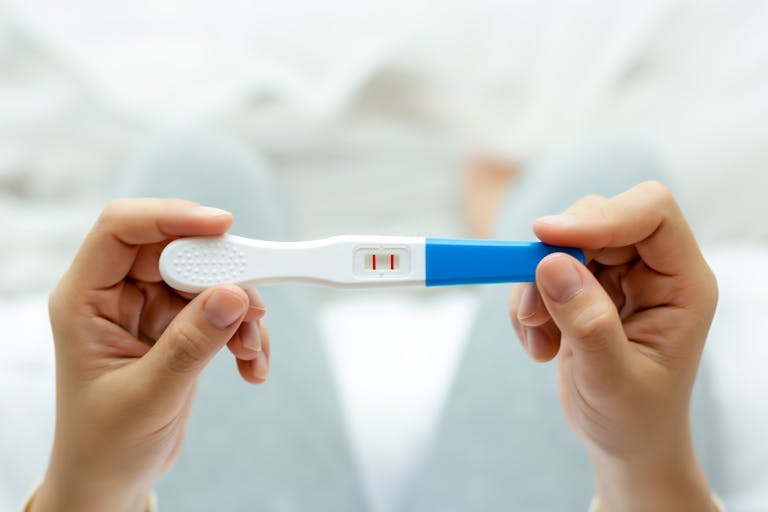
South Dakota sues Mayday Health over gas station abortion ads
Bridget Sielicki
·
South Carolina House passes bill protecting preborn babies from abortion at fertilization
Lawmakers in the South Carolina House passed a bill on Thursday protecting preborn children from abortion beginning at the point of fertilization — the first moment of their existence.
H. 3552, or the Human Life Protection Act, passed in an 83-31 vote. Representative John McCravy said the bill “sends a message that the days of abortion as birth control are drawing to an end, and it is now time for our pro-life Senators to keep their word and vote to pass this bill.”
The bill specifically references the Dobbs v. Jackson Women’s Health Organization decision handed down last June, which overturned Roe v. Wade, pointing out that South Carolina is exercising its political power to protect preborn children. The bill defines abortion as “the act of using or prescribing any instrument, medicine, drug, or any other substance, device, or means with the intent to terminate the clinically diagnosable pregnancy of a woman with knowledge that the termination by those means will, with reasonable likelihood, cause the death of the unborn human being….”
The bill states:
It is not a violation of Section 44-41-820 for a physician to perform a medical procedure necessary in his reasonable medical judgment to prevent the death of a pregnant woman, a substantial risk of death of a pregnant woman due to a physical condition, or the substantial physical impairment of a major bodily function of the pregnant woman, not including psychological or emotional conditions.
In reality, induced abortion — which deliberately ends human life in order to end a pregnancy — is not necessary to save the life or health of a pregnant woman. Emergency C-sections, preterm delivery, miscarriage treatment, and surgery for ectopic pregnancies are not considered induced abortions and are not prohibited by this bill:
It is presumed that the following medical conditions constitute a substantial risk of death or substantial risk of substantial physical impairment of a major bodily function of a pregnant woman: molar pregnancy, partial molar pregnancy, blighted ovum, ectopic pregnancy, severe preeclampsia, HELLP syndrome, abruptio placentae, severe physical maternal trauma, uterine rupture, intrauterine fetal demise, and miscarriage. However, when an unborn child is alive in utero, the physician must make all reasonable efforts to deliver and save the life of an unborn child during the process of separating the unborn child from the pregnant woman, to the extent that it does not adversely affect the life or physical health of the pregnant woman, and in a manner that is consistent with reasonable medical practice. The enumeration of the medical conditions in this item is not intended to exclude or abrogate other conditions that satisfy the exclusions contained in item (1) or prevent other procedures that are not included in the definition of abortion.
Women who undergo abortions would not face any penalties under the bill. Someone who illegally commits an abortion, however, could be sued for up to $10,000 for each violation, and also faces up to two years in prison. Additionally, the bill requires the biological father to cover 50% of pregnancy-related costs.
The bill is very specific in stating that a physician must “make reasonable medical efforts under the circumstances to preserve the life of the pregnant woman’s unborn child, to the extent that it does not substantially risk the death or physical impairment of a major bodily function of the pregnant woman, not including psychological or emotional conditions and in a manner consistent with reasonable medical practices,” and that “A medical procedure shall not be considered necessary if it is performed based upon a claim or diagnosis that the woman will engage in conduct that she intends to result in her death or in a substantial physical impairment of a major bodily function.”
Physicians performing a medical procedure according to the bill must “declare, in a written document maintained with the woman’s medical records, that the medical procedure was necessary, the woman’s medical condition necessitating the procedure, the physician’s rationale for his conclusion that the procedure was necessary, and that all reasonable efforts were made to save the unborn child in the event it was living prior to the procedure” and must be placed in the woman’s medical records within 30 days. The bill adds, “Medical treatment provided to a pregnant woman by a physician which results in the accidental or unintentional injury or death of her unborn child is not a violation.”
“We’re in a new position now,” McCravy said. “We’re not drafting a bill to try to tease the United States Supreme Court. We’re drafting a bill for South Carolina.”
During the House debate, Rep. Adam Morgan said:
When does life begin? Because if life begins at conception, it should be protected. When does life begin?
Article continues below
Dear Reader,
In 2026, Live Action is heading straight where the battle is fiercest: college campuses.
We have a bold initiative to establish 100 Live Action campus chapters within the next year, and your partnership will make it a success!
Your support today will help train and equip young leaders, bring Live Action’s educational content into academic environments, host on-campus events and debates, and empower students to challenge the pro-abortion status quo with truth and compassion.
Invest in pro-life grassroots outreach and cultural formation with your DOUBLED year-end gift!
This is from the American College of Pediatrics: “The predominance of human biological research confirms that human life begins at conception.”
This is a great quote from a professor at Harvard University Medical School: “It is incorrect to say that biolgical data cannot be decisive. It is scientifically correct to say that an individual human life begins at conception.” In discussing why so many people don’t think that, she went on to say, “Our laws, one function of which is to help preserve the lives of our people, should be based on accurate scientific data.”
Another professor at University of Colorado Medical School: “The beginning of a single human life is from a biological point of view. A simple and a straightforward matter. The beginning is conception.”
Ninety-six percent of biologists affirm — over 5500 surveyed over 1,000 medical institutions across the world surveyed — 96% affirm that life begins at conception. […] And if life begins at conception, you as a legislator who has a solemn duty to protect life should protect it.
This bill is not perfect. In fact, I don’t think it does protect all lives and I think that’s a tragedy. But it sure does protect a whole lot.
An amendment was put forth by several lawmakers challenging the exceptions in the bill, but it failed to pass. Rep. Josiah Magnuson was one of these lawmakers. He reminded the House that there is a higher authority, a natural law that determines right and wrong:
This is a line in the sand that I am not willing to compromise on. I believe that I would be remiss not to bring this issue to the table and ask for your support – to defend every human baby.
… We don’t make the laws. God makes the laws. We just enforce them and do what is right, but… if we don’t do our role that we have been given, especially against those who need it the most… [W]e are doing violence to the fatherless… if we pass a bill that allows violence to the fatherless to children conceived in rape and incest…
When we talk about children conceived in rape, incest and fatal fetal anomalies, we are talking about the most vulnerable and innocent – the people who are disfavoured by society. There is a stigma to being conceived in rape… it is the state’s job to say “no, those people matter too.”
Noah Brandt, Vice President of Communications for Live Action, said, “South Carolina can protect every child and end abortion. Being 100% pro-life means protecting every child. Discriminating against children based on a diagnosis or circumstance of conception is unjust. Yesterday, several heroic representatives in the House fought to amend the bill and remove exceptions. But House leadership chose to table the amendment that would remove exceptions. Every child deserves protection without exception.”
In January, the South Carolina Supreme Court struck down a state law protecting preborn children after a heartbeat is detected. Typically, a preborn child’s heart begins beating around 22-23 days after fertilization, though it often isn’t detectable until approximately six weeks. The decision was the first time a state Supreme Court has ruled in favor of a supposed “constitutional right” to abortion. Governor Henry McMaster and Attorney General Alan Wilson have continued to fight to have the law reinstated, though the state Supreme Court has refused to hear an appeal.
Editor’s Note: This post will be updated as necessary.
Live Action News is pro-life news and commentary from a pro-life perspective.
Contact editor@liveaction.org for questions, corrections, or if you are seeking permission to reprint any Live Action News content.
Guest Articles: To submit a guest article to Live Action News, email editor@liveaction.org with an attached Word document of 800-1000 words. Please also attach any photos relevant to your submission if applicable. If your submission is accepted for publication, you will be notified within three weeks. Guest articles are not compensated (see our Open License Agreement). Thank you for your interest in Live Action News!

Bridget Sielicki
·
Politics
Bridget Sielicki
·
Issues
Bridget Sielicki
·
Politics
Nancy Flanders
·
Human Interest
Nancy Flanders
·
Issues
Nancy Flanders
·
International
Cassy Cooke
·
Analysis
Cassy Cooke
·
Analysis
Cassy Cooke
·
Analysis
Cassy Cooke
·
Analysis
Cassy Cooke
·